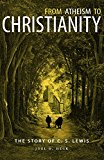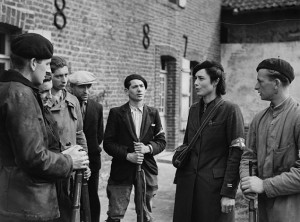 C. S. Lewis, one of the foremost Christian apologists, had been for 15 years a convinced and rather militant atheist. My friend and former colleague Joel Heck has written a splendid study of Lewis’s atheism, published by Concordia Publishing House: From Atheism to Christianity: The Story of C. S. Lewis
C. S. Lewis, one of the foremost Christian apologists, had been for 15 years a convinced and rather militant atheist. My friend and former colleague Joel Heck has written a splendid study of Lewis’s atheism, published by Concordia Publishing House: From Atheism to Christianity: The Story of C. S. Lewis
There are many kinds of atheism, just like there are many kinds of Christianity, and Joel unpacks the influences, books, and ideas that defined Lewis’s particular variety of unbelief. In tracing Lewis’s life and intellectual development from his school days through the early years of his academic career, the book is a compelling biography.
In his recreation of the intellectual atmosphere of pre-war Oxford, Joel shows the important influence of idealist philosophers, such as F. H. Bradley and Henri Bergson. Most studies of early modernism focus on materialism and existentialism. And yet, arguably, the idealists–who said things like “”the Universe begins to look more like a great thought than like a great machine” (James Jeans)–may have been even more important. After all, T. S. Eliot, a founder of literary modernism, wrote his dissertation on Bradley. Certainly the artistic modernists–Yeats and Joyce with their mythmaking; Stravinsky with his neo-primitive music; Picasso’s Cubism, Dalí’s Surrealism, and Kandinsky’s Abstractionism–are hard to reconcile with the definition of Modernism as an “age of reason.” [Suggestion for graduate students: Lots of good material for dissertations here!]
Both idealists and materialists could be atheist, and Lewis seems to have vacillated between the two, but idealism best accounted for his personal and aesthetic yearnings. This new book also describes in detail how and why Lewis gave up his atheism, turning first to belief in a personal though philosophically-abstract deity, and then to the God of Abraham who became incarnate in Jesus Christ.
C. S. Lewis fans, apologists, intellectual historians, and atheists will all want to read this book.
From Editorial Description, From Atheism to Christianity: The Story of C. S. Lewis: Joel Heck, Amazon.com: Books:
This is the story of how one of the world’s most famous atheists became one of its most famous Christians.
From Atheism to Christianity: The Story of C. S. Lewis is the spiritual homecoming story of Clive Staples Lewis, a careful and thoughtful scholar who spent fifteen years journeying the long road from atheism to theism and, eventually, to Christianity. Drawing from Lewis’s own writings, as well as those he sought out during his quest for spiritual understanding, From Atheism to Christianity highlights the longing, reluctance, searching, and surrender that defined these years of Lewis’s life and provides answers to the questions that surround this profound character:
- What attracted Lewis to atheism and eventually Christianity?
- How did he leave atheism behind?
- Why did his journey take fifteen years?
- Who influenced his thought during those years?
- What authors did he read, and whom did he interact with and confide in?
Explore the most tumultuous and defining years of C. S. Lewis’s life, gathering clues that reveal the meaning of life for contemporary atheists and theists all from the perspective of one who knew both atheism and Christianity from the inside.
Remember, I had always wanted, above all things, not to be interfered with. I had wanted (mad wish) to call my soul my own. C. S. Lewis





